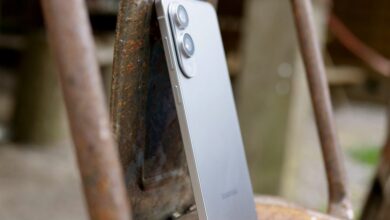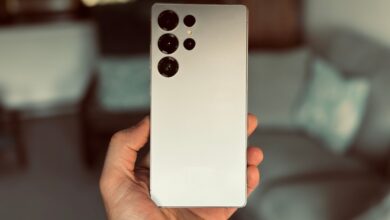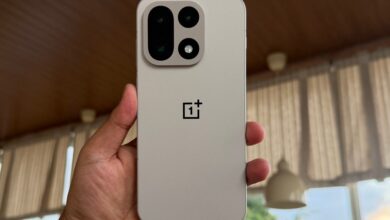Google Unveils Smart Glasses: A Glimpse into Our Futuristic World!

At a recent TED talk, Google unveiled its new XR smartglasses to the public for the first time. While previous glimpses of these glasses were limited to polished promotional videos, this live demonstration provided a real look at their features and capabilities. The excitement surrounding this reveal is palpable, but it’s important to remember that we are still looking at future technology.
Overview of the presentation
The 16-minute presentation primarily showcased what the smartglasses can do. Shahram Izadi, Google’s vice president of augmented and extended reality, introduced the project. He explained that Android XR is central to this initiative, developed in partnership with Samsung. This operating system aims to integrate google Gemini into various devices like headsets and smartglasses.
During the demo, a pair of striking black smartglasses took center stage. Their design resembles Ray-Ban Meta glasses but includes additional features such as a camera, speaker, and microphone for AI interaction.Users can make calls through their phones while enjoying an innovative color display embedded in the lenses.
Smart Features That Stand Out
One notable feature demonstrated was Gemini's ability to remember what it has “seen.” As a notable exmaple, it accurately recalled book titles that users glanced at and even tracked where hotel keycards were left behind. This short-term memory function serves multiple purposes: it helps jog memories and assists with organizing tasks more effectively.
The AI vision also played a crucial role during the demo by explaining diagrams from books and translating text into different languages instantly. When asked for directions to a local attraction, Gemini displayed navigation instructions directly on the lens while responding quickly to commands—showing impressive functionality throughout the live demonstration.
Transitioning from Glasses to Headsets
After showcasing the smartglasses' capabilities, Izadi shifted focus toward Android XR's performance on full headsets.The visual experience was reminiscent of Apple’s Vision Pro headset; users could see multiple windows in front of them while using pinch gestures for control. Though, Gemini remained central during this segment as well—demonstrating its ability to describe visuals conversationally.
Future Availability
Izadi concluded his talk by expressing enthusiasm about entering an exciting phase in computing technology: “Headsets and glasses are just beginning.” He emphasized that these devices will provide instant access to information while becoming more user-pleasant through advanced AI interactions tailored specifically for individuals’ needs.
This vision is enticing for those who appreciated Google Glass or currently enjoy Ray-Ban meta products; however, it's essential not to get ahead of ourselves regarding availability since no release dates were mentioned during his presentation—a concerning sign indeed.
Reports suggest that these innovative smartglasses may not hit stores untill 2026 due largely due collaboration between google and Samsung on development efforts—a timeline pushed back from earlier expectations set before late 2025 according The Korean Economic Daily report . While waiting might feel lengthy now ,it actually places them closer than other upcoming products like Meta's Orion smartglasses which won’t arrive until late 2027 .
Will It Be Too Late?
Given how closely related these new glasses appear compared with existing models like Glass or Ray-Ban Meta—and considering they incorporate familiar elements from Google's current assistant—the prolonged wait feels frustratingly unnecessary .
Moreover ,the influx of competing hardware utilizing similar technologies means there’s potential risk here : if released too late ,Google & Samsung could find themselves facing an audience already fatigued by similar offerings flooding market space before then . Simultaneously occurring ,Project Moohan (the name given Android XR headset) is expected launch sometime around 2025 .
While impatience may be part our nature when presented with such promising demos showcasing nearly finished products—it remains tough not wanting them sooner rather than later!





